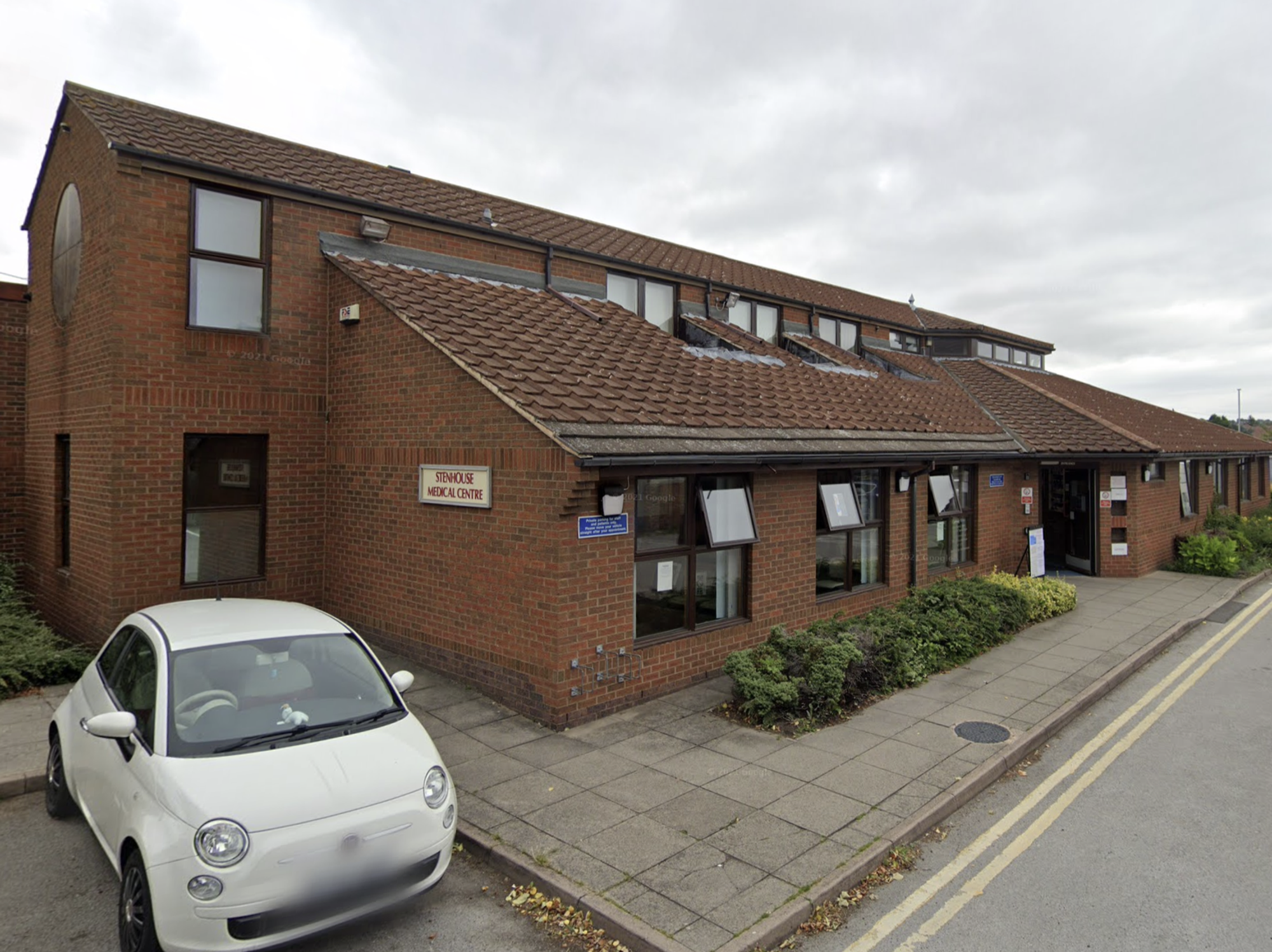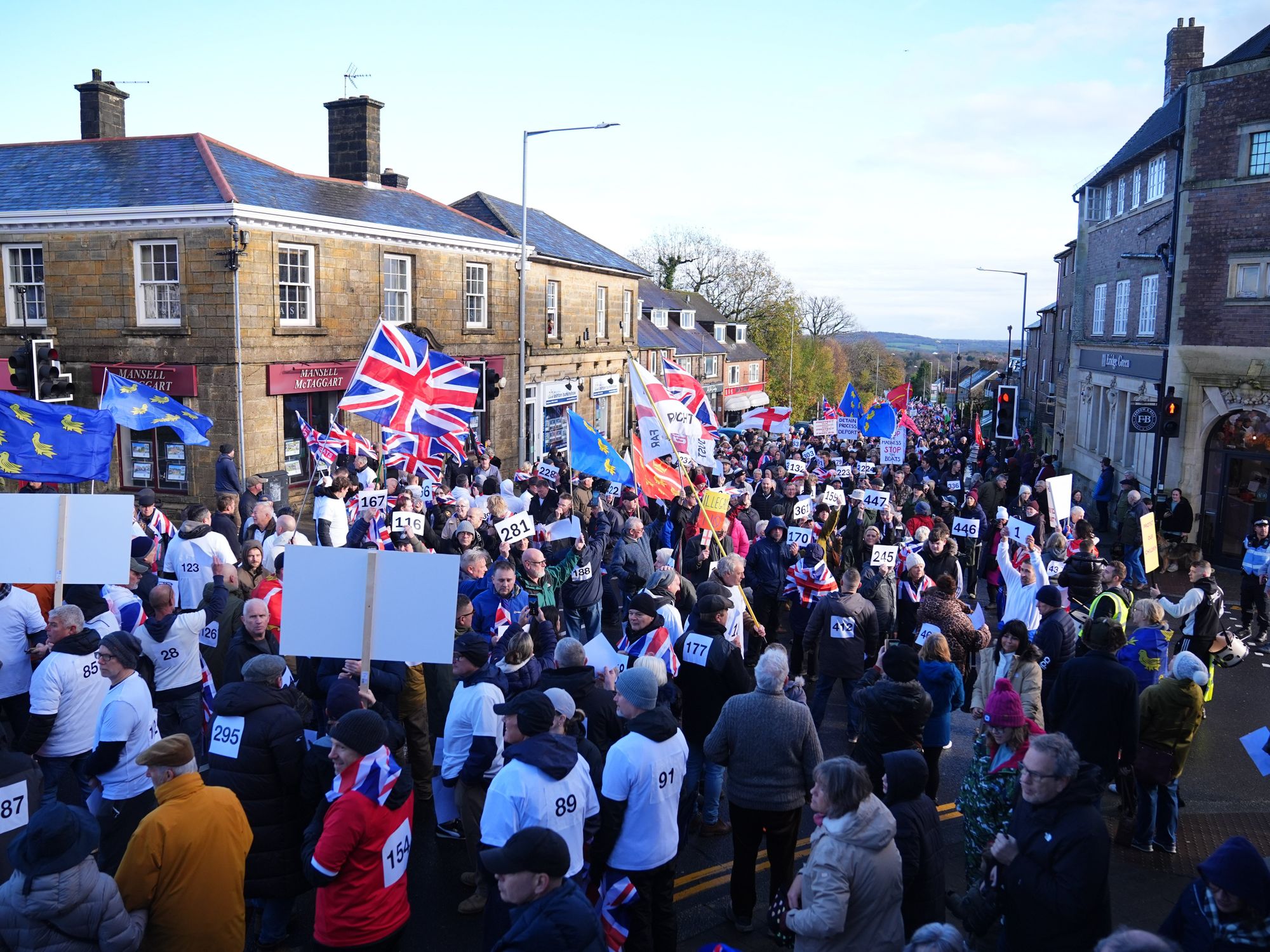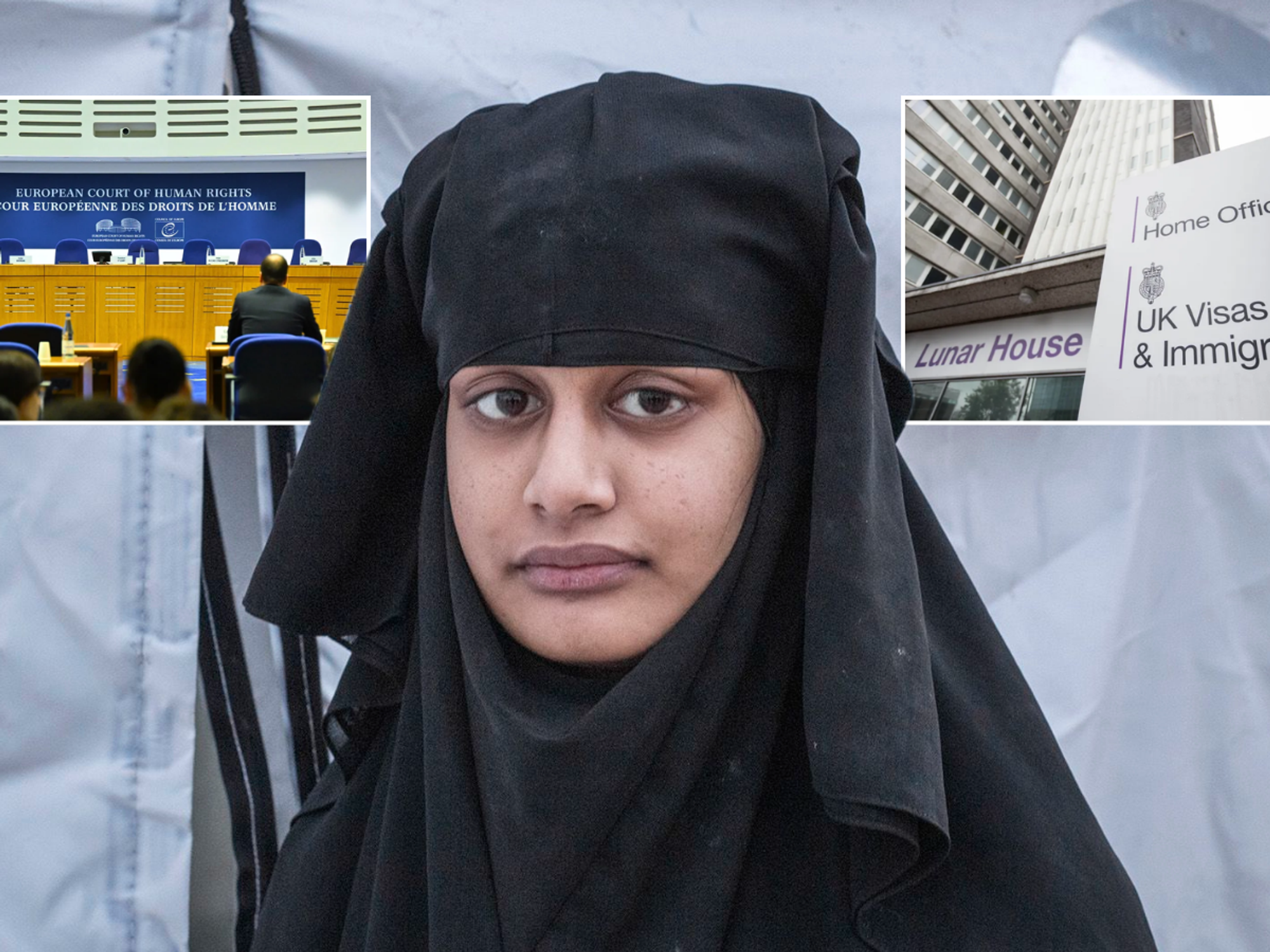‘The latest immigration figures are terrifying. Here’s why,’ writes Henry Bolton
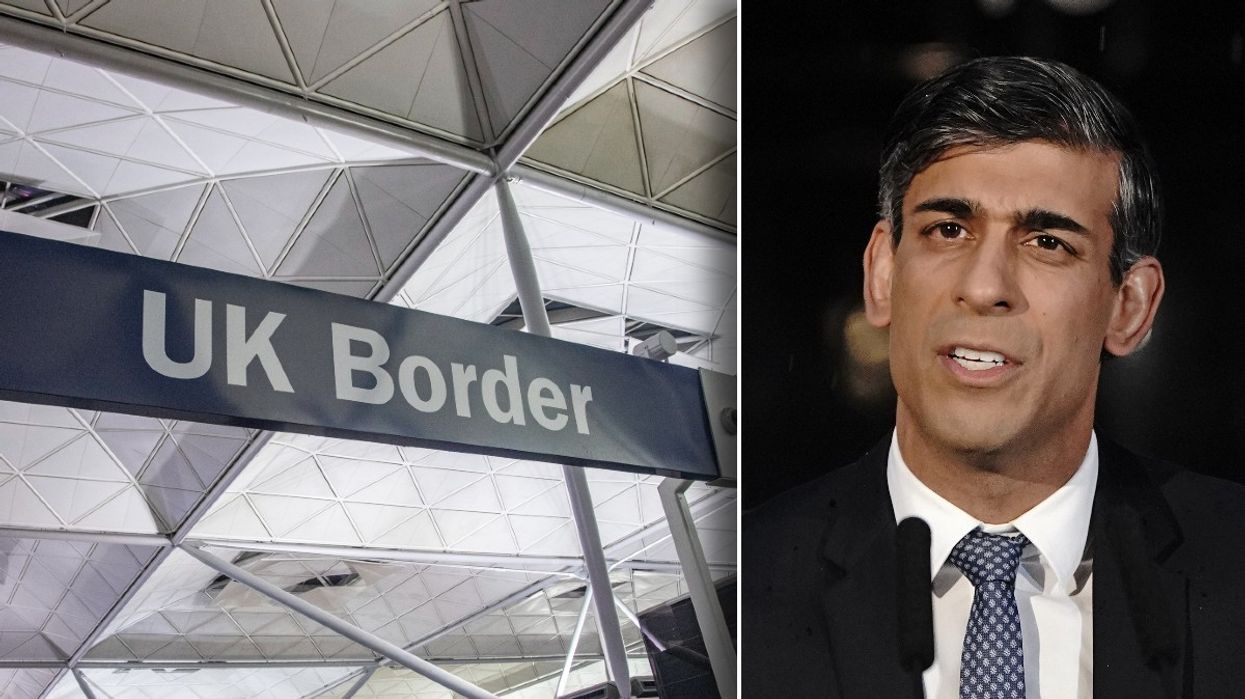
‘The latest immigration figures are terrifying. Here’s why,’ writes Henry Bolton
|Getty Images/PA

There will be an eye-watering financial cost and practical impact on Britain, explains Henry Bolton
Don't Miss
Most Read
Nearly fourteen months ago, Rishi Sunak made five promises to the country. One of those promises was to “Stop the boats”. Well, how’s that going Prime Minister?
Last year, during your watch, 29,437 people crossed the Channel, so it doesn’t look too good from where we stand.
The boat people are an extremely important issue because they demonstrate just how porous and insecure our borders are, and let’s not forget that all the cocaine, all the heroin and 97 per cent of the illegal firearms in this country also manage to get across our borders Prime Minister. But, while the number of people crossing the Channel in small boats is seriously worrying, those numbers pail into insignificance in immigration terms when we compare them with the fact that, last year alone, the government issued an incredible 1.4 million visas to workers, students, relatives, dependents, and those in humanitarian need. The numbers are absolutely eye-watering.
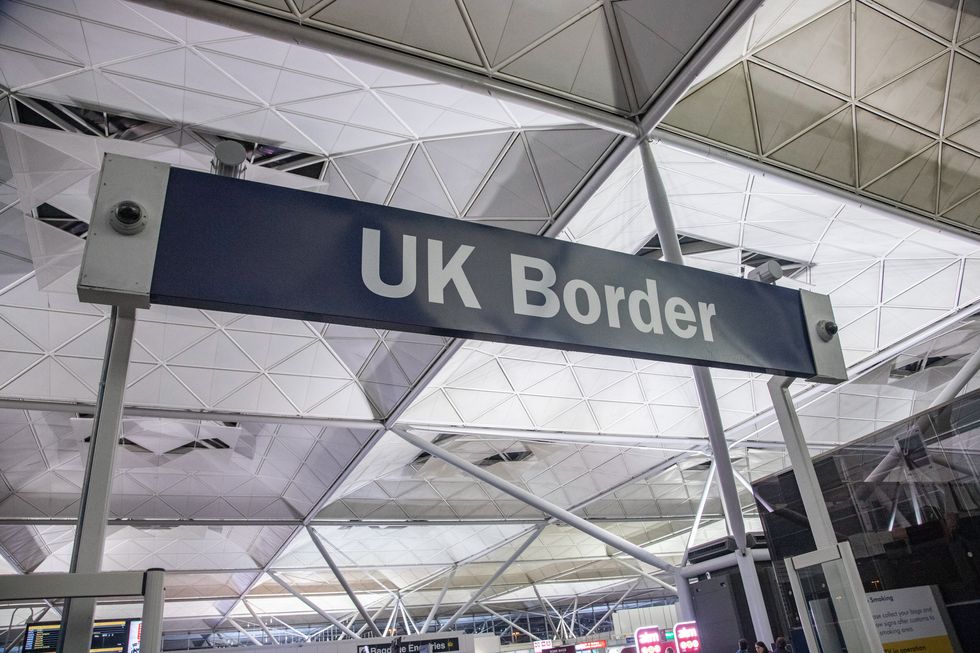
UK border at Stanstead Airport in London
|Getty Images
People who argue that we should have an open border policy might argue that the 337,240 foreign workers who came here last year contribute to the economy, but they cannot credibly argue the same for the 360,340 dependents and family members who were also given visas. Nor can they explain how 1.4 million people can be housed and their infrastructure and public service needs be met without that housing, that infrastructure and those services being stretched to breaking point.
Then there is the eye-watering financial cost and practical impact. In 2022 net immigration was 745,000, almost equating to the population of Nottingham.
Now consider that Nottingham has exactly 100 schools, 43 doctors’ surgeries, 7 police stations and that Nottingham City Transport operates 300 buses, and you start to comprehend the immense cost – in financial and administrative capacity terms – of maintaining an acceptable level of public services to the British public when immigration places such strain on the system.
LATEST DEVELOPMENTS:
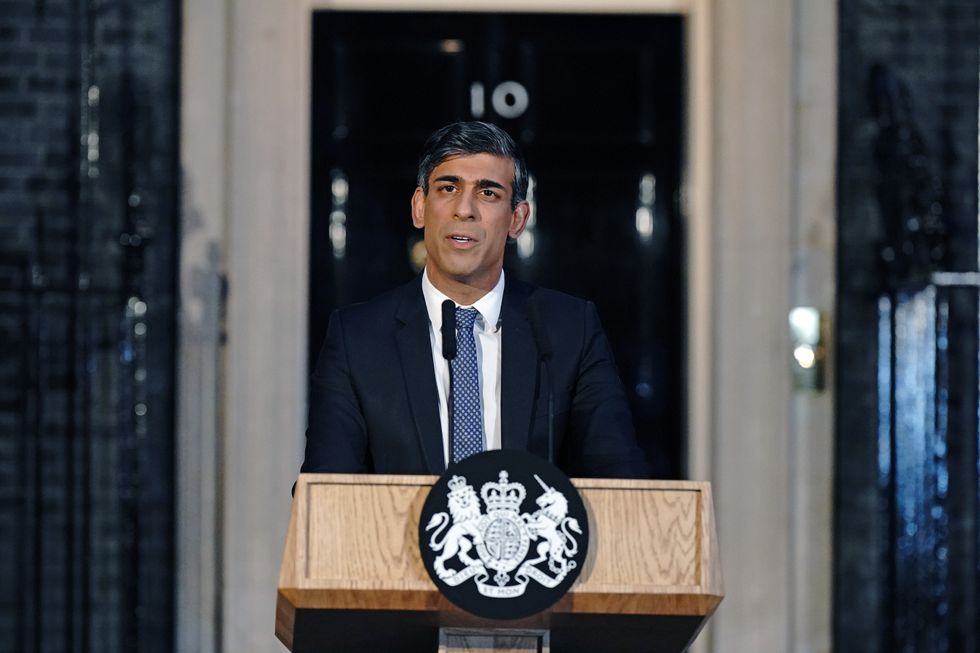
Rishi Sunak made five promises to the country nearly 14 months ago
|PA
And that’s not the only cost. The World Bank suggests that in 2018 migrant workers in the UK sent close to £23.6billion to their home countries (called remittance payments). That is money taken out of the UK economy, and we can safely assume the amount has risen sharply since then, in pace with the huge increase in immigration over the intervening period.
Then add the £5.4billion annual cost (£14.8million per day) of supporting the asylum seeker population of the UK, and you start to see the immensity of the financial burden on our economy. Remittances, and asylum alone cost the UK economy £29billion, at the very least.
“Ah…”, some will say, “You’re ignoring the fact that foreign workers pay tax”. Well, I’m sorry to disappoint those people, I am not.
In 2018 (same year as the World Bank remittance figures), the government’s own figures show that tax revenue from foreign workers totalled £26.8billion, leaving us with a deficit of £2.2billion, and that’s before we’ve allowed for the cost of providing 100 schools, 43 doctors’ surgeries, 7 police stations and that Nottingham City Transport operates 300 buses.
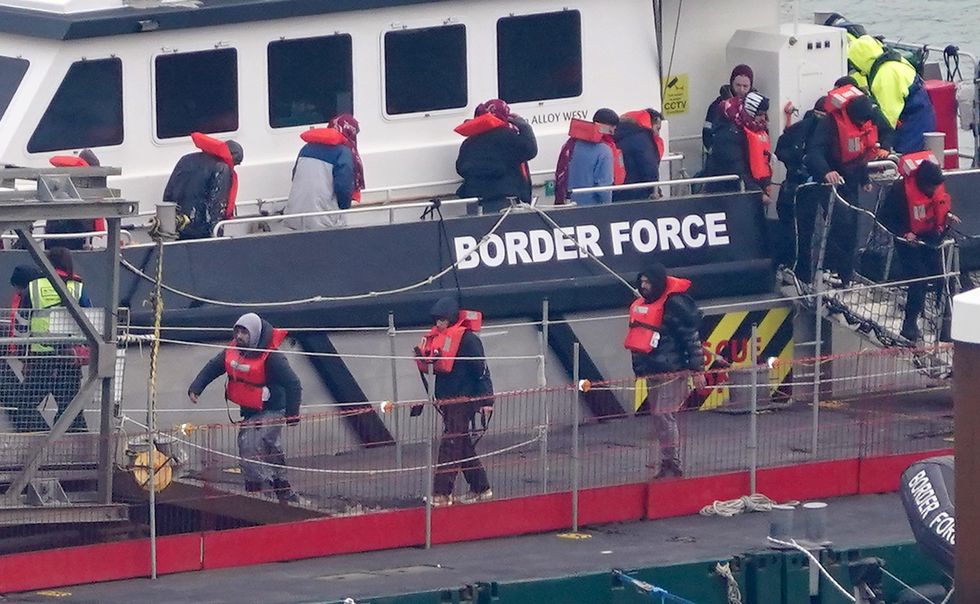
UK border: £14.8million per day is spent supporting the asylum seeker population
|PA
There’s another implication that we cannot easily quantify in terms of numbers, and that is the immense impact on British social and political cohesion when millions of people come here who don’t speak English, originate from cultures with very different social norms to our own, and who often have little or no concept of, or respect for our laws or political system.
The protests we’ve seen in relation to Gaza, the recent rise in anti-Semitism and desecration of our national memorials and centres of national life, and the increase in violent clashes between immigrant communities, all demonstrate that our immigration policies have resulted in the importation of foreign conflicts.
These conflicts that are now starting to play out on our streets, and we don’t want them! We’re also seeing a dramatic rise in political Islam, often allied with homegrown, far-left socialism, our MPs are being threatened, harassed, and intimidated and, highly divisive, subversive and blatantly un-democratic behaviour characterised the run-up to yesterday’s Rochdale by-election. All these things are linked to immigration.
The stark reality is that the latest immigration figures represent a rate of immigration, the burden of which is unsustainable in every conceivable way: financial, practical, political, and social.
Every day during which we fail to deal with it, and its implications, is a day during which that burden grows ever more intolerable and the risk to our democratic and parliamentary system increases.
I shall leave you with this thought. Who we let into this country is a matter of conscious, policy and legal decision.
Policy and the law are in the hands of the British Government and Parliament. Ergo, our politicians are either choosing to place this burden and its terrifying implications on our country, are or choosing not to do anything about it.





